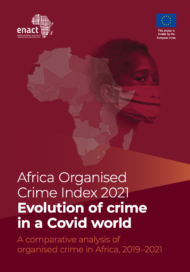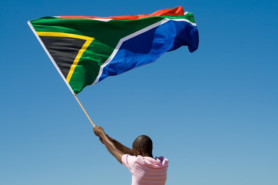Posted on 11 Oct 2016
On 12 April 2015, a Whatsapp text from the Patriotic Movement, Pan Local Forum, Unemployed Workers Forum, Anti-Crime Movement and others went viral telling African foreigners in South Africa to return to their home countries. It asserted:
‘…there are signs of drug-dealing, prostitution and other criminal acts that you conduct- sometimes in cahoots with desperate locals. Your presence at this moment in our history is most destructive and destabilising to our country and our citizens. …Please GO HOME and BUILD Africa. Millions will die if you don’t. This we can guarantee’.
This message came to our attention from a local civil society organisation (CSO), the Adonis Musati Project (AMP), based in Cape Town. Many of AMP’s employees had received this text and were scared to come to work. From speaking with them, it became increasingly apparent that immigrants are subjected to violence not only by South Africans, but also by various state actors. There is a widespread perception of immigrants as criminals who break the law by illegally crossing a sovereign border and thus become ‘illegal foreigners’.
The research conducted by Theresa Alfaro-Velcamp, an Honorary Research Associate, Centre of Criminology, Faculty of Law, University of Cape Town (UCT) and Mark Shaw, Director of the Global Initiative, published in a recent article, “‘Please GO HOME and BUILD Africa’: Criminalising Immigrants in South Africa” for the Journal of Southern African Studies, highlights not only a much overlooked global migration route, but more importantly, that the failure to properly and proactively address migration in South Africa has lead to the compound criminalisation of migrants, with severe consequences for community cohesion.
They observe that in South Africa, immigrants are seen as breaking the law by illegally crossing a sovereign border and becoming illegal foreigners. Having entered the country without authorisation (‘papers’), these foreigners become perceived as drug dealers, traffickers of children, squatters, facilitators/exploiters of an informal economy, and thieves stealing opportunities from South Africans. The article identifies three principle techniques of criminalising immigrants:
- 1. Immigrants being compelled to purchase immigrant documents through illicit means to stay legally in South Africa, with a criminal industry developing around the production and procurement of such documents;
- 2. The South African Police Service conducting raids such as Operation Fiela and arresting foreigners as a source of ‘community criminality’;
- 3. The South African Police Service, along with the Department of Home Affairs officials, illegally detaining immigrants, and demanding tributes for their release.
Together, these techniques contribute to the criminalisation of African foreign nationals and explain how a Whatsapp message can reverberate throughout South Africa.
The result in South Africa has been growing levels of xenophobic violence towards African migrants, both by communities but also by state officials. Alfaro-Velcamp and Shaw observe that the criminalisation of immigrants allows some government officials to direct attention away from corruption and other pressing issues, including state crimes, and to direct it towards migrants as a universal bad guy. Foreigners become easy scapegoats, conflating immigrants and criminals, and targeting immigrant communities for arrests functions as a way of bolstering or appearing to bolster public perception of police efficacy.
Importantly, the authors conclude that this approach to migration is increasingly characteristic of governance in the global south, and is a trend worthy of considerable further analysis, and careful monitoring.
Read the full article here: ‘Please GO HOME and BUILD Africa’: Criminalising Immigrants in South Africa
By Theresa Alfaro-Velcamp, Honorary Research Associate, Centre of Criminology, Faculty of Law, University of Cape Town (UCT), South Africa and Professor, Sonoma State University, California, USA and Mark Shaw, Director of the Global Initiative and Professor and NRF Research Chair, Centre of Criminology, Faculty of Law, UCT.
Photo credit: “Queues outside of Department of Home Affairs” by Gahlia Brogneri



